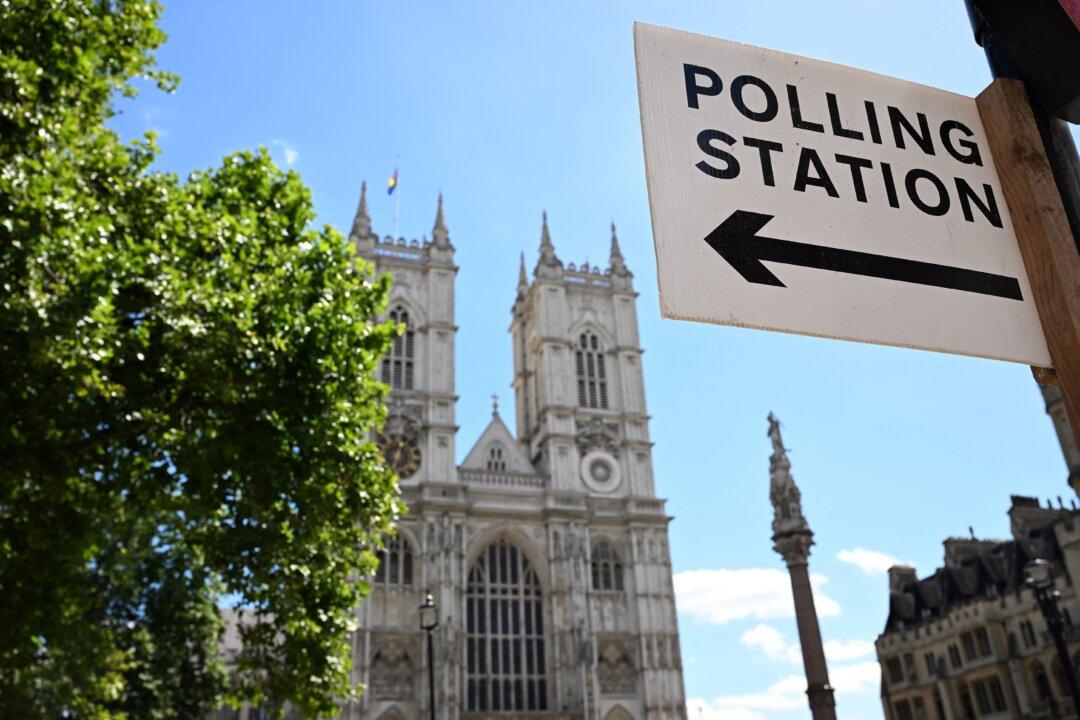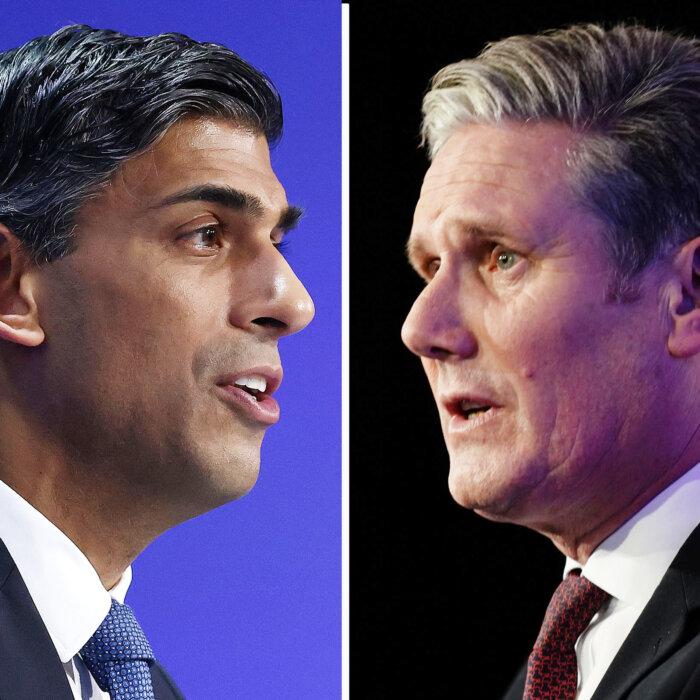Britons headed to polling stations across the country on Thursday as voting got underway in the general election.
After six weeks of campaigning, millions are set to cast their vote between 7 a.m. and 10 p.m., with opinion polls suggesting the ruling Conservative Party will find itself out of office for the first time in 14 years.
The opposition Labour Party is widely predicted to form the next government with a majority which could exceed that which saw Tony Blair sweep to power in 1997.
An exit poll, published shortly after 10 p.m., will give the first indication of how the 650 seats up for grabs will be divvied up between the parties.
This is the first UK general election where photo ID will need to be shown before voters can receive their ballots after the law was changed in 2022.
The first constituencies are expected to begin declaring their results from 11:30 p.m.
Prime Minister Rishi Sunak said Thursday represents a “pivotal moment” for the country’s future as he claimed Labour would “wield their unchecked power” to increase taxes should they secure a “supermajority.”
Mr. Sunak greeted reporters and waved as he and his wife, Akshata Murty, visited the polling station at Kirby Sigston Village Hall in Northallerton, Yorkshire, to vote on Thursday.
In his last speech on Wednesday night, he described himself as an “underdog” who would “fight to the final whistle.”
Sir Keir Starmer said the country “cannot afford” another five years of Tory rule, claiming Britain could “begin a new chapter” under his leadership and that the “future is on the ballot.”
The Labour leader was cheered by activists as he spoke at a community centre in Redditch, Worcestershire, as he called time on his campaign.
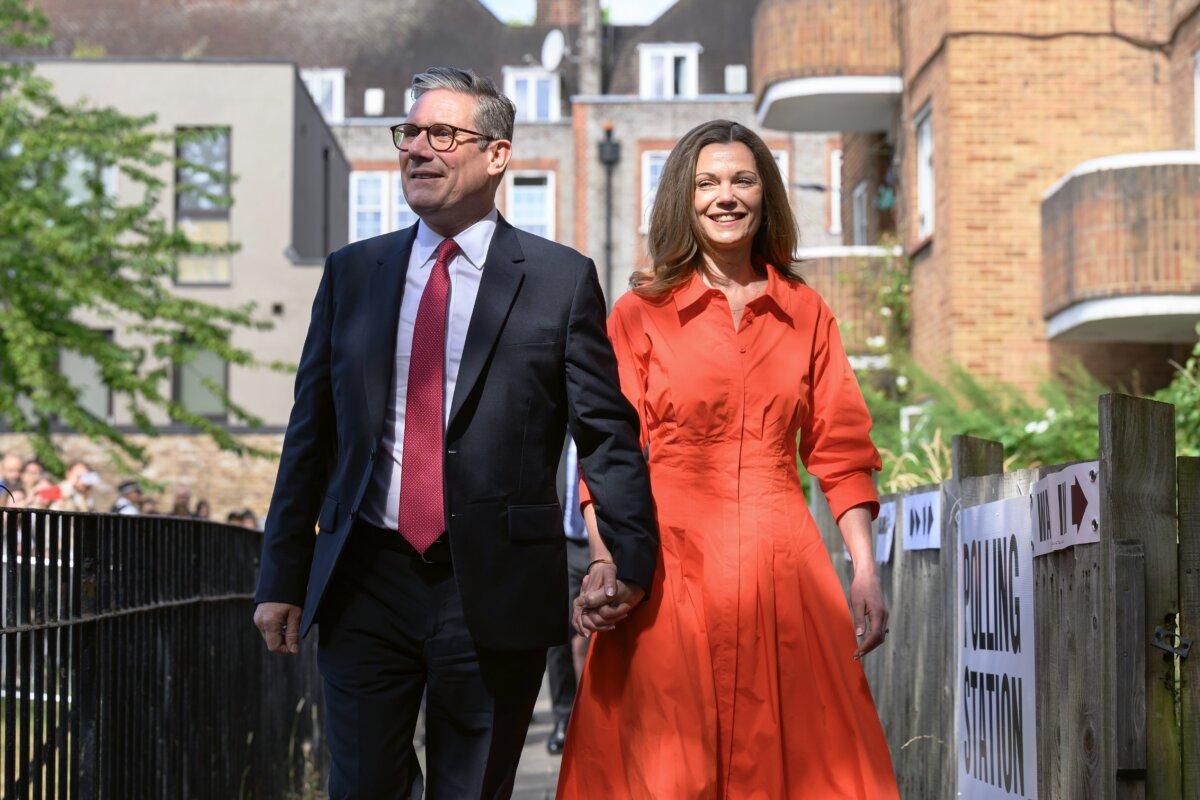
The bookies’ favourite to be the next resident of Number 10, Sir Keir said he was pleased with his party’s campaign and that it was “ready for what comes next.”
Liberal Democrat leader Sir Ed Davey ended a madcap campaign chock full of stunts and japes by driving away in a pink Cadillac convertible with his deputy Daisy Cooper, after his last election campaign stop at Hammond’s End Farm in Harpenden to the tune of ABBA’s “Take a Chance on Me.”
Sir Ed added: “Communities are angry. The water companies have been allowed to pour their filthy sewage into our rivers, lakes, and onto our beaches. This has to change. The Conservatives have got to go.”
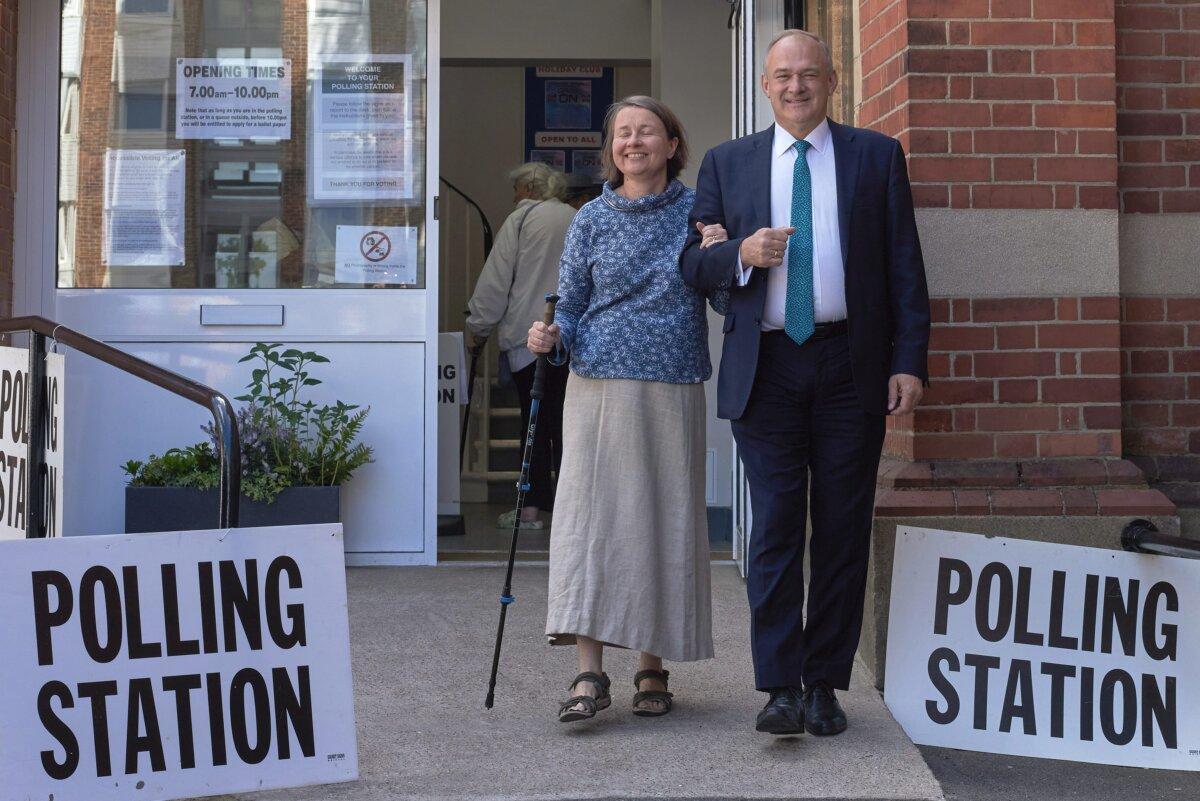
Nigel Farage led crowd at a rally on Clacton Pier, Essex, in a chant of “we want our country back” as he said the 2024 election is the “tip of the iceberg” for Reform UK.
The party leader entered his rally on an army vehicle to the tune of “Without Me” by Eminem.
He said: “This is the first step of a new political movement, but this is not just about winning seats in Parliament, which we will, it’s about forming an opposition to a Starmer-led government with a big majority.
“The Conservatives can’t do that. They may split they’re so divided, and frankly, I think pretty devoid of talent.”
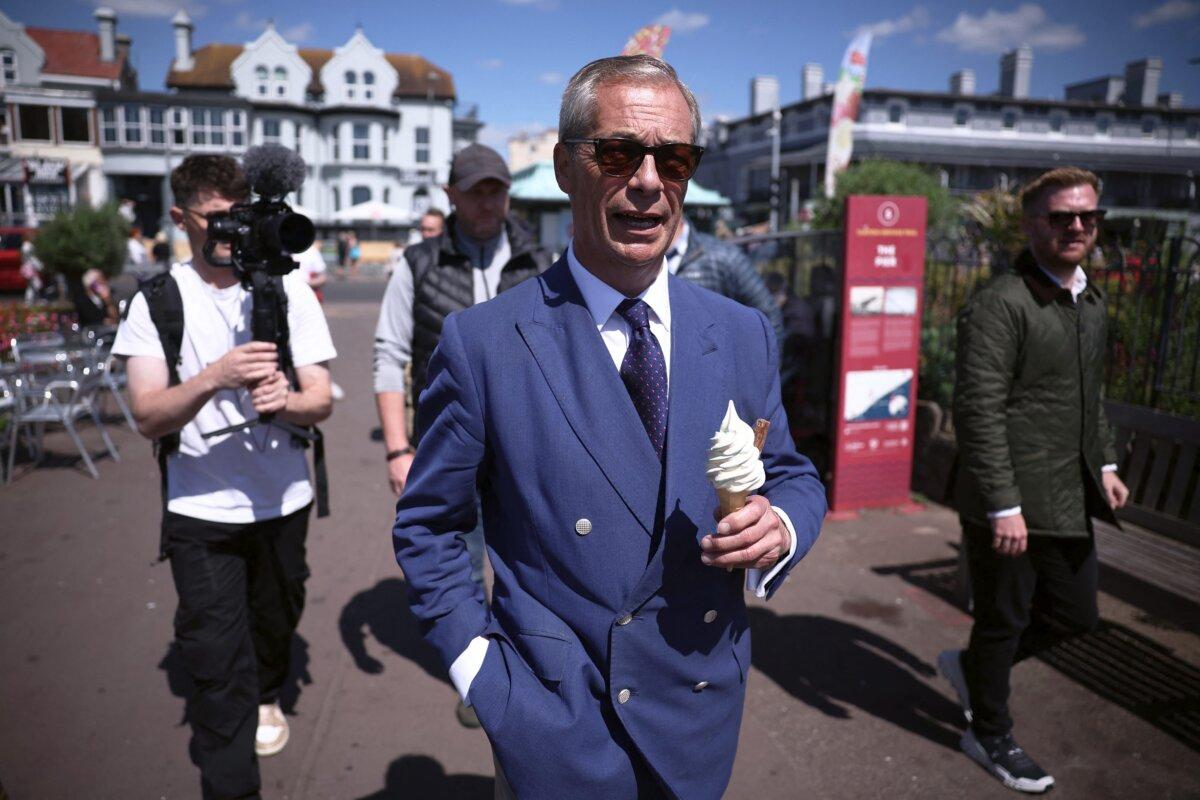
Scottish First Minister and Scottish National Party (SNP) leader John Swinney called on “every single SNP voter” to turn out on Thursday in what he said will be an “incredibly close” contest throughout the country.
Addressing supporters at a pre-election rally in the Leith area of Edinburgh on Wednesday, Mr. Swinney said the Tories would be “heavily defeated” in England, but there were “narrow margins” between Labour and the SNP north of the border.
Mr. Swinney was accompanied by his son Matthew as he cast his vote at Burrelton Village Hall, Perthshire, on Thursday morning.
An average of all polls completed during the seven days to July 3 puts the Labour Party on 39 percent, its lowest rating since the campaign began, 18 points ahead of the Conservatives on 21 percent. Reform was next on 16 percent, followed by the Lib Dems on 11 percent, and the Greens on 6 percent.
The Tories have seen a slight rise on the figures for the previous week while Labour are fractionally down, with the averages for the seven days to June 26 being Labour 41 percent, Conservatives 20 percent, Reform 16 percent, Lib Dems 11 percent, and Greens 6 percent.
Six weeks ago, on May 22 when Mr. Sunak called the election, the seven-day averages stood at Labour 45 percent, Conservatives 23 percent, Reform 11 percent, Lib Dems 9 percent, and Greens 6 percent.
